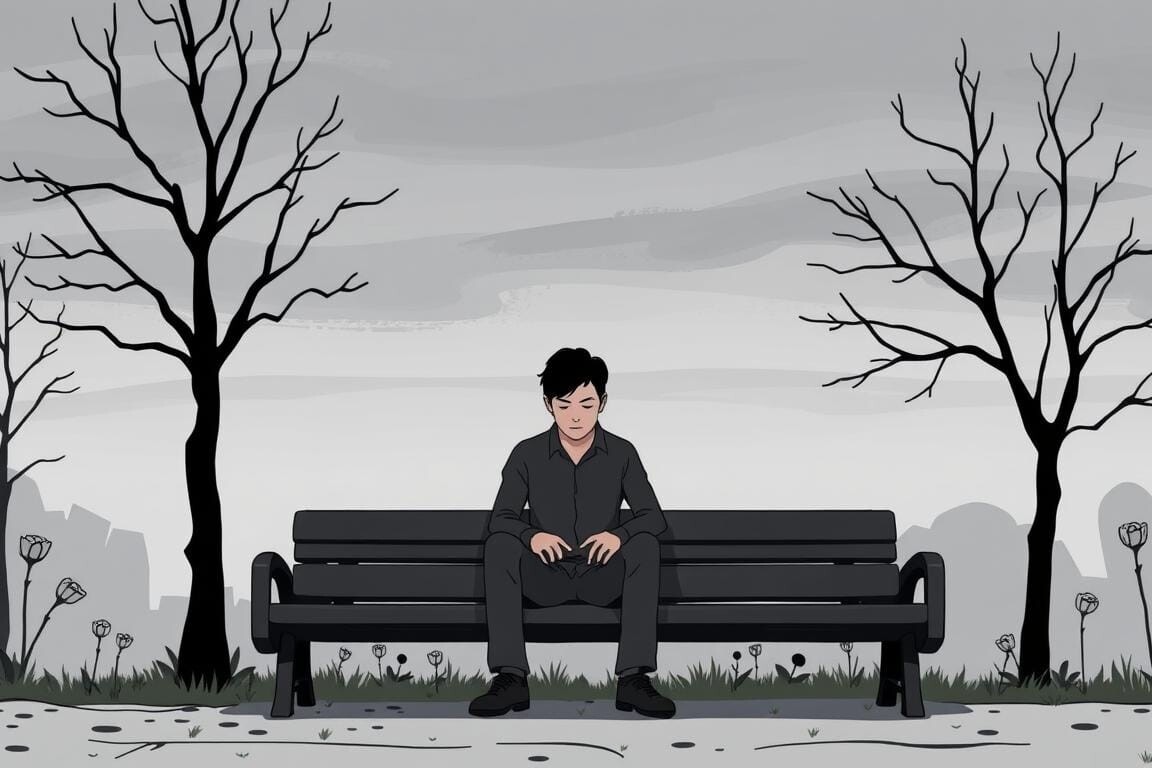Breastfeeding is known for its many benefits. But it can also affect your mental health. About 10-20% of new moms get postpartum depression, and breastfeeding moms might be at higher risk.
It’s key to understand how breastfeeding and mental health are connected. This knowledge helps support and care for new moms better.
In this article, Dr. Chandril Chugh shares the latest on this topic. Dr. Chugh talks about why we must tackle postpartum depression. He also looks at how breastfeeding affects a mom’s mental health.
Table of Contents
ToggleIntroduction to Breastfeeding and Postpartum Depression
Breastfeeding is good for both mom and baby. But, it might also raise the risk of postpartum depression in moms. We’ll look into how breastfeeding mental health and postpartum depression symptoms are linked in new moms.
Understanding the Connection Between Breastfeeding and Mental Health
There’s a complex link between breastfeeding and postpartum depression. Some studies say longer breastfeeding might lower depression risk. But, others find breastfeeding doesn’t shield moms from postpartum depression risk factors.
Exploring the Importance of Addressing Postpartum Depression
Postpartum depression can harm both mom and baby. It affects up to 19.6% of new moms in low-income countries. It’s key to tackle this to ensure family health and happiness.

Benefits of Breastfeeding for Mother and Baby
Breastfeeding is great for both mom and baby. It helps babies avoid many health problems. These include infections, diarrhea, ear infections, and obesity. It also helps them grow well and have a strong immune system.
For the mom, breastfeeding can make her feel better after having a baby. It can help lower the risk of feeling sad or depressed after childbirth. This is because breastfeeding can make a mom’s mood and feelings better.
It’s also good for the mom’s health. It can lower the risk of breast cancer, ovarian cancer, high blood pressure, and Type 2 diabetes. Breastfeeding for more than a year can make these risks even lower.
Babies who are breastfed often get sick less and are healthier. Doctors usually suggest breastfeeding for at least six months. This is to make sure the baby gets the most benefits.
But, some things can make it hard to breastfeed only. Medical issues, surgeries, or work can be examples. If you’re having trouble, talking to a lactation consultant or a breastfeeding medicine expert can help.
Challenges and Barriers to Breastfeeding
Many mothers face big challenges when trying to breastfeed. In the United States, some think it’s hard or that bottle-feeding is easier. They might also believe chubby babies are healthier, which isn’t true.
Only 25.4% of women in the U.S. are still breastfeeding at 6 months. About 45% stop too early, which is not good.
Lack of Support and Resources for Breastfeeding Mothers
Not enough support and resources are available for breastfeeding moms. At birth, over 83% of U.S. babies are breastfed. But this number goes down fast.
This drop is because many moms don’t get the help they need. Workplaces also often aren’t friendly to breastfeeding.
We need to help more by giving moms the support they deserve. Healthcare providers, employers, and communities must work together. This will help moms breastfeed successfully.

Factors Contributing to Decreased Breastfeeding Rates
In developing countries, things are even harder. There’s less education and poor healthcare access. False beliefs about breastfeeding also play a part.
To solve these problems, we need a plan that tackles both personal and big issues. By doing this, we can help more moms breastfeed. This is good for both mom and baby.
Breastfeeding and postpartum depression
Postpartum depression is a serious mental health issue that can hit new moms, even those who breastfeed. Studies show breastfeeding moms might face a higher risk of this condition. About 10-15% of new moms in the U.S. deal with postpartum depression. Those who didn’t breastfeed exclusively had a 89% higher risk.
Stopping breastfeeding can lead to more depression, research shows. Moms who faced pain, infections, or issues with latching were more likely to feel depressed. This shows why we need to support breastfeeding moms through tough times.
A study with over 2,500 women found a link between negative breastfeeding feelings and depression. Women who felt pain or had issues soon after birth were more likely to feel depressed at two months. Also, moms who wanted to breastfeed but couldn’t were more likely to feel depressed.
It’s key to understand postpartum depression in breastfeeding moms to help them. Early support for breastfeeding can lower depression risk. But, moms should be allowed to stop if they face big challenges.

Impact of Breastfeeding on Maternal Mental Health
Breastfeeding can deeply affect a mother’s mental health. Hormonal changes, like more prolactin and oxytocin, can change her mood. But, breastfeeding’s demands can lead to sleep loss, tiredness, and a higher risk of depression after birth.
Hormonal Changes and Emotional Well-being
When a mother breastfeeds, her body changes a lot. The rise in prolactin helps her feel calm and bond with her baby. Oxytocin, known as the “love hormone,” also boosts her nurturing side.
But, breastfeeding can also be hard on a mother’s mood. The constant feedings and sleep loss can make her feel very tired and stressed. This shows how important it is to care for a new mother’s mental health.

Studies on breastfeeding and mental health are mixed. Some say breastfeeding helps against anxiety and depression. But, others find it can make mental health issues worse. It’s key to understand how hormones, emotions, and breastfeeding work together to help new mothers.
Supporting Breastfeeding Mothers with Postpartum Depression
It’s very important to support breastfeeding moms with postpartum depression. This condition can make it hard for them to care for their babies. But, with the right help, they can get through it and keep breastfeeding.
Importance of Social and Emotional Support
Support from family and friends is key for these moms. Feeling alone can make things worse. By talking openly and helping out, loved ones can make a big difference. They can offer the emotional support needed.
Coping Strategies and Professional Help
There are many ways to help these moms. Support groups, both online and in-person, are great. They let moms share and get advice. Professional counseling is also very helpful.
Self-care is important too. Getting enough sleep, eating well, and drinking water helps. Taking care of oneself makes it easier to handle the challenges of breastfeeding and parenting.
With the right support for breastfeeding mothers with postpartum depression, emotional support for breastfeeding mothers, and coping strategies for postpartum depression, moms can beat the odds. They can keep a healthy breastfeeding relationship with their babies.
Balancing Breastfeeding and Self-Care
As a new mom, taking care of yourself is key while breastfeeding. It helps keep your mind and body healthy. This can lower the chance of feeling down after having a baby. By focusing on rest, eating right, and drinking water, you can handle breastfeeding better. This way, you’ll have the energy to take care of your baby.
Prioritizing Rest, Nutrition, and Hydration
Breastfeeding can be hard on your body and mind. So, it’s important to take care of yourself. Try to rest, even if it’s just a short nap. Eating well and drinking water will keep you energized and help your body heal.
Here are some self-care tips for your daily routine:
- Do relaxing things while breastfeeding, like meditating, listening to music, or reading.
- Make healthy snacks and meals ahead of time. This way, you’ll have good food ready.
- Always carry a water bottle. Drink water often to stay hydrated.
- Ask your partner, family, or friends for help with chores. This lets you focus on yourself.
By taking care of yourself while breastfeeding, you can handle the challenges of being a new mom. This supports your overall health and well-being.
Role of Healthcare Providers and Family
Healthcare providers and a new mother’s family are key in supporting breastfeeding and managing postpartum depression. Healthcare providers must give the right education and resources. This helps breastfeeding mothers and guides them through the postpartum period.
Providing Appropriate Education and Resources
Healthcare providers should be ready to:
- Educate new mothers on breastfeeding techniques and strategies to manage common challenges
- Offer guidance on recognizing and coping with postpartum depression
- Provide information on available resources and support services for breastfeeding mothers
- Encourage open communication and foster a safe, non-judgmental environment for mothers to share their experiences
Family members can also be very helpful. They can:
- Offer practical assistance with household tasks and caring for the baby
- Provide emotional support and a nurturing environment for the new mother
- Encourage the mother to prioritize self-care and rest
- Advocate for the mother’s needs and help her navigate the postpartum period
Together, healthcare providers and family members can ensure breastfeeding mothers get the support they need. This support helps them navigate the postpartum period and overcome challenges like postpartum depression.
Conclusion
Breastfeeding is good for both mom and baby. But, it can also affect a mom’s mental health. Postpartum depression hits 10-20% of new moms in the U.S.
It’s key to understand how breastfeeding and mental health are linked. We must support both mom and baby well.
Helping new moms with breastfeeding challenges is important. This includes lack of support and resources. It helps moms focus on their mental health and enjoy breastfeeding.
In places like Clark County, Nevada, postpartum depression rates are higher. We need to tackle this issue.
Supporting moms with postpartum depression is vital. This includes counseling, coping strategies, and self-care. It ensures new moms get the help they need to do well.
The link between breastfeeding and postpartum depression is clear. We must support breastfeeding moms’ mental health. This is key for family well-being.
FAQ
What are the benefits of breastfeeding for the mother and the baby?
Breastfeeding is great for both mom and baby. It helps babies avoid many health issues. These include infections and obesity. It also helps them grow well and have a strong immune system.
For moms, it can help prevent depression. It makes them feel better emotionally.
What are the common challenges and barriers to breastfeeding?
In rich countries, some moms think it’s hard. They might find bottle-feeding easier. They might also worry about their baby’s weight.
Workplaces that don’t support breastfeeding are a big problem. In poor countries, lack of education and healthcare is a big issue. False beliefs about breastfeeding also play a role.
What is the prevalence of postpartum depression among breastfeeding mothers?
Research shows breastfeeding moms might get postpartum depression more often. About 10-20% of new moms feel this way. Those who didn’t breastfeed exclusively were 89% more likely to get it.
How can breastfeeding impact a mother’s mental health?
Hormones like prolactin and oxytocin can make moms feel better. But, breastfeeding can also make moms very tired. This can lead to depression.
What are the key strategies for supporting breastfeeding mothers with postpartum depression?
Moms need support from loved ones. They should join support groups and see counselors. This helps them feel less alone and stressed.
Rest, eating well, and drinking water are also important. These help moms handle breastfeeding and depression.
What is the role of healthcare providers and family in supporting breastfeeding mothers?
Doctors should teach new moms about breastfeeding. They should also help with depression. Family can help with chores and caring for the baby.
They can make a safe and loving space for the new mom.
Source Links
- Are Breastfeeding Mothers More Prone to Depression? Here is What Experts Say
- Content Posted in 2021 | Providence St. Joseph Health Digital Commons
- Breastfeeding Status and Duration Impact Postpartum Depression Risk
- Frontiers | Postpartum Depressive Symptoms and Their Selected Psychological Predictors in Breast-, Mixed and Formula-Feeding Mothers
About The Author

Medically reviewed by Dr. Chandril Chugh, MD, DM (Neurology)
Dr. Chandril Chugh is a U.S.-trained, board-certified neurologist with expertise in diagnosing and managing neurological disorders, including migraines, epilepsy, Parkinson’s disease, and movement disorders. His clinical focus includes evidence-based neurological care and patient education.
All content is reviewed for medical accuracy and aligned with current neurological guidelines.




